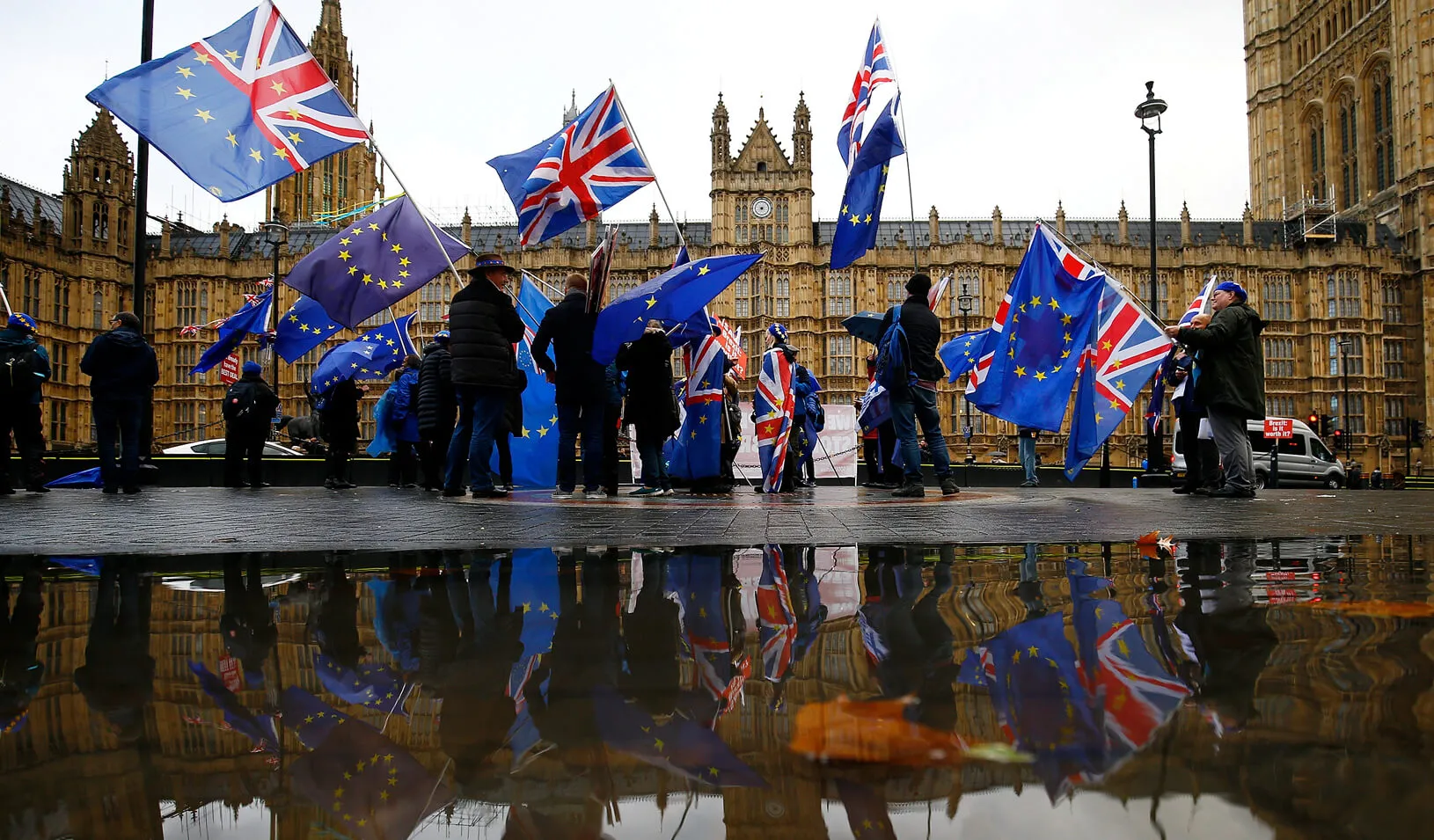January 30, 2019
| by Edmund L. AndrewsWith the United Kingdom now hurtling toward a political train wreck over “Brexit,” business uncertainty is driving the UK economy toward a recession.
Nicholas A. Bloom, a professor of economics by courtesy at Stanford Graduate School of Business and a leading analyst of how uncertainty affects the economy, says the turmoil generated by Brexit is unique.
The British sterling has dropped roughly 10% against the dollar and 15% against the euro since voters approved a referendum in 2016 to leave the European Union. The UK economy, which had been growing faster than any other Group of Seven nation before the referendum, is now growing slower than any other. In fact, Bloom estimates that the UK economy is about 1.5% smaller than it would have been without the drama.
“Brexit is unique,” he says. “If you look back at big events over the years — the JFK assassination, the OPEC oil embargo, the 9/11 attacks — they all created big surges of uncertainty that later subsided as people learned about the impact. With Brexit, the uncertainty has actually increased. The only historical parallel is the Great Depression, which started with the stock market crash of 1929.”
Polling Business Leaders
Bloom, who co-created the widely cited Economic Policy Uncertainty Index, teamed up with the Bank of England and the University of Nottingham and worked with Stanford PhD student Scarlet Chen to regularly survey business executives about Brexit’s likely impact.
Their Decision Maker Panel now includes top financial executives at about 6,000 UK businesses, large and small, that collectively employ more than 10% of the nation’s private-sector workforce. About 3,000 companies participate in each monthly survey.
An overwhelming majority of the companies, about 70%, say they oppose Brexit. The opposition is strongest among bigger companies, and Bloom estimates that the opposition represents companies with about 80% of private-sector employees.
The bigger economic issue, says Bloom, is that Brexit is increasing the kind of uncertainty that prompts companies to delay investment and hiring. Regardless of whether companies agree with the policy or not, they are increasingly alarmed by the sheer absence of a plan for a smooth exit.
For the first two years after the Brexit referendum in June 2016, about 40% of the companies surveyed listed it as either their biggest source of uncertainty or one of their top three. The anxiety jumped sharply last fall, when a rebellion by hard-line Brexiteers within the Conservative Party suddenly raised the prospect that Britain wouldn’t even be able to negotiate an orderly exit with the European Union. A “no-deal” exit would wreak havoc on both UK exports and imports.
By October 2018, 19% of the surveyed companies said Brexit was the top source of uncertainty and another 29% said it was their second or third biggest worry. The anxiety was higher in export-heavy industries, such as manufacturing, as well as in industries such as construction that rely heavily on EU migrants. But the uncertainty is now fairly widespread: Roughly half of all companies with more than 100 employees list Brexit as one of their top three worries. On average, companies in the survey estimate that Brexit will eventually reduce their sales by 2.5%.
Slow Build
One thing that makes Brexit so different from other uncertainty shocks, Bloom says, is that this one did not begin with a financial or economic shock.
For a long time, in fact, many of the usual indicators of investor anxiety were surprisingly tranquil. UK stocks held steady after the referendum, and stock market volatility remained fairly low until the summer of 2018.
Brexit does appear to have slowed down investment and hiring, however, and most economists expect the British economy to slow down even more in the coming year.
The anxiety undoubtedly spiked to new highs in early January, after Parliament overwhelmingly rejected the exit plan Prime Minister Theresa May had agonizingly negotiated with the European Union. With a handful of weeks left before the March 29 deadline to reach agreement on an “orderly” exit, it’s anybody’s guess what will happen.
“The problem is that there never was a Brexit plan, and the range of possible outcomes is much wider now than it was initially,” Bloom says. “Brexiteers promised something they hadn’t thought through. It was much like jumping out of an airplane, grabbing a rucksack, and assuming that there’s a parachute inside, only to find out that was only a packed lunch as you’re hurtling to the ground.”
For media inquiries, visit the Newsroom.






